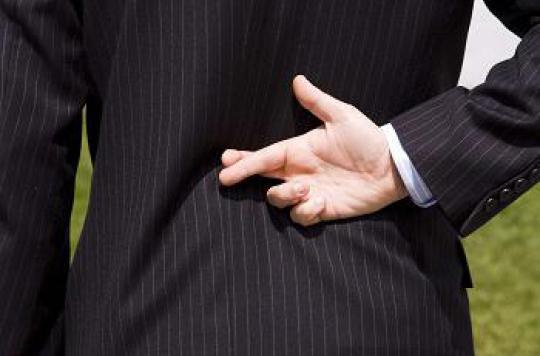The common idea is that you feel guilty when you have cheated. An American interuniversity study proves that it is exactly the opposite.

Who hasn’t felt over-excited after cheating on school benches? Until now, psychologists have assumed that immoral behavior leads to feelings of guilt. An interuniversity study wanted to determine by a test the feeling of a cheater just after his withdrawal. The results are published in the Journal of Personality and Social Psychology.
A positive emotion
During a pre-test interview, study participants estimated their reaction to a cheat. The majority replied that they would feel uncomfortable. The “guinea pigs” then received a test, then a corrected one. They performed an autocorrection and reported the number of correct answers. For each correct answer, the participant earns 1 dollar. 41% corrected errors without knowing that researchers were spotting the corrections. Each person then followed an interview. Cheaters say they felt a surge of positive emotion. Those who controlled themselves did not feel it.
A cheater would therefore be in a good mood after his forfeit. Surprised by this assessment, the researchers developed a second test, less incentive. More financial reward this time. The new group took a formal computer test to assess the chances of future success and intelligence. More than one in two respondents said they would ignore a pop-up message with the correct answer. In practice, almost 70% have used said message at least once. This time again, they felt a surge of positive emotions.
Excitement, complacency and superiority
Data analysis is surprising. As long as you don’t have the feeling of having hurt someone by cheating, you feel very good, say the researchers. Even more surprisingly, most of the participants report feeling a positive emotion when they commit a moral transgression. Easy access to means of fraud encourages cheating, according to the report. With the spread of the Internet, there are many ways to cheat anonymously.
What is this feeling? The relief of not being spotted? The stress ? Researchers have actually found it to be excitement mixed with pride. Participants said they felt self-righteousness as well as a sense of superiority when they cheated. The same goes for indirect cheating. Scientists nonetheless recall the limits of their study. Anonymity increased the risk of cheating. Moreover, the fraud did not involve harming a third party, which reduced its moral impact. A future study by the same collective will determine whether this positive feeling causes people to cheat again.
.















